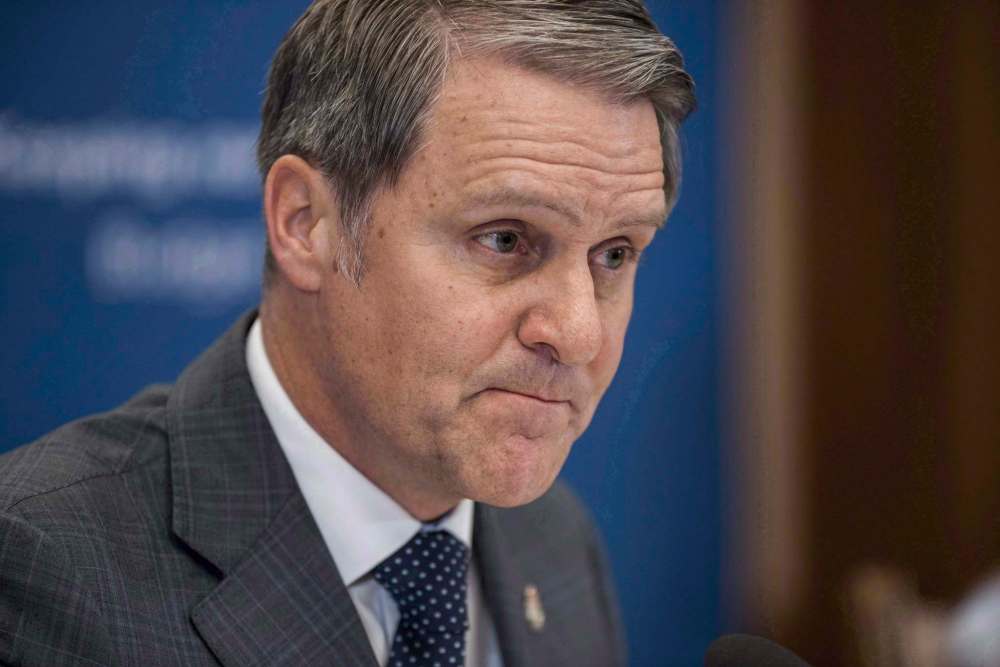When patient privacy becomes secondary
Read this article for free:
or
Already have an account? Log in here »
To continue reading, please subscribe:
Monthly Digital Subscription
$0 for the first 4 weeks*
- Enjoy unlimited reading on winnipegfreepress.com
- Read the E-Edition, our digital replica newspaper
- Access News Break, our award-winning app
- Play interactive puzzles
*No charge for 4 weeks then price increases to the regular rate of $19.00 plus GST every four weeks. Offer available to new and qualified returning subscribers only. Cancel any time.
Monthly Digital Subscription
$4.75/week*
- Enjoy unlimited reading on winnipegfreepress.com
- Read the E-Edition, our digital replica newspaper
- Access News Break, our award-winning app
- Play interactive puzzles
*Billed as $19 plus GST every four weeks. Cancel any time.
To continue reading, please subscribe:
Add Free Press access to your Brandon Sun subscription for only an additional
$1 for the first 4 weeks*
*Your next subscription payment will increase by $1.00 and you will be charged $16.99 plus GST for four weeks. After four weeks, your payment will increase to $23.99 plus GST every four weeks.
Read unlimited articles for free today:
or
Already have an account? Log in here »
Hey there, time traveller!
This article was published 07/12/2018 (2576 days ago), so information in it may no longer be current.
Doctor-patient confidentiality is considered as sacrosanct as lawyer-client privilege or the seal of the confessional.
We need to trust that both details about our health and our communications with medical professionals remain utterly private; to think otherwise might result in patients shying away from seeking the help they need.
In recent years and with the advent of electronic communication, in fact, those privacy rules under Manitoba’s Personal Health Information Act (PHIA) have become even stricter.
However, there are circumstances when we need to trust those same medical professionals to make a judgment about when the right to privacy is outweighed by a risk to a patient’s life, or the lives of others.
That’s what’s being recognized by a proposed amendment to the Mental Health Act and PHIA that would allow medical professionals, in exceptional circumstances, to contact family, designated friends or other individuals — without a patient’s consent, if necessary — to lower the risk of patients harming themselves or anyone else.
This isn’t a change that would be undertaken lightly, as Health Minister Cameron Friesen indicated Tuesday at the legislature when Bill 5 was tabled.

Mr. Friesen pointed out that although the current system does allow for breach of patient privacy when absolutely warranted, the current legal threshold is limiting health-care workers from taking action in many cases; he stressed that there would be a learning curve for those in the system to adjust to new rules.
It will be essential for those in the medical field to understand how the unique demands of providing mental-health care affect the interpretation of the obligations they have as the custodians of health information.
The idea of standardized protocols for health-care providers to follow — protocols that would specifically lay out the circumstances in which the Mental Health Act would take precedence over the terms of PHIA to allow for the collection, use and disclosure of personal health information without consent — is not new. British Columbia, Ontario and Nova Scotia have legislation similar to that proposed here, which meticulously outlines the situations in which a patient’s information may released and the means of documenting the decisions that were made and why.
Bill 5 seems eminently reasonable, even overdue. Suicide isn’t something we like to think about, let alone talk about, but it’s a major cause of premature and preventable death. Among Canadian males, it’s the seventh most common cause of death, with the highest rates of suicide occurring among people aged 40 to 59; if there is a way to reduce those numbers, it should be embraced.Bill 5 seems eminently reasonable, even overdue. Suicide isn’t something we like to think about, let alone talk about, but it’s a major cause of premature and preventable death
Of course, the causes of suicidal ideation are complex and cannot be attributed to any one factor, but mental-health issues and drug addiction can be contributing factors; these are conditions that may detract from people’s ability to make decisions in their own best interest.
We trust medical professionals to keep our counsel. We should also trust them to judge when we need help that we’re not capable of seeking ourselves.
No one wants to get a call from a doctor or therapist about a loved one who wants to harm herself or a friend who’s suicidal.
The only thing worse? Not getting that call at all.










